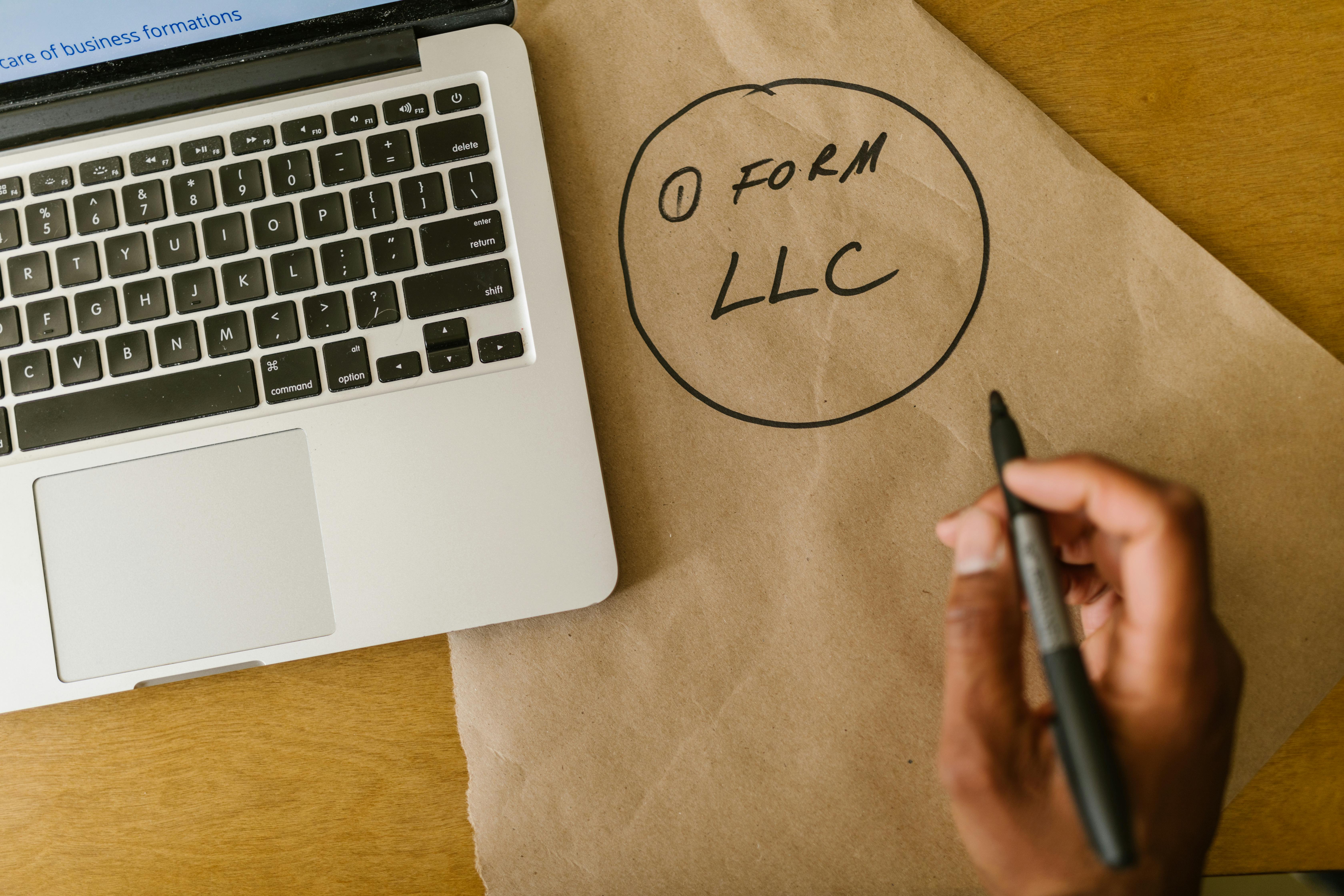Sole Proprietorship vs. LLC: Which is Right for Your Business?

September 19, 2025

Starting a business is an exciting opportunity to turn a dream into a reality, but it’s also rife with important decisions, especially when you’re starting out. One of the biggest is choosing the right legal structure for your venture. This choice isn’t just a formality; it will significantly impact your personal liability, tax obligations, administrative burden, and even your ability to grow and attract investment.
Two structures often stand out for solo entrepreneurs who are starting a business on their own: Sole proprietorship and limited liability company (LLC). There may be advantages to each, but it’s crucial to compare sole proprietorship vs. LLC before filing because it can be time-consuming and costly to change your business structure.
Here, we break down each structure to help you understand the unique advantages and disadvantages of sole proprietorships vs. LLCs to help you make an informed decision that aligns with your business goals and risk tolerance.
What Is a Sole Proprietorship?
A sole proprietorship is the simplest form of business ownership, in which there is no formal distinction between the owner and the business entity. According to the U.S. Small Business Administration, sole proprietorships represent 86% of all nonemployer businesses, which make up 82% of all American businesses. It’s the most common business entity because it’s the easiest way to start a business. If you’re a copywriter, for instance, you could file to start a sole proprietorship to formalize your business and simply use your name as the business name.
Pros
The advantages of a sole proprietorship include:
- Simplicity and low cost: Forming a sole proprietorship is very easy and inexpensive. In many cases, it requires no formal state filing; you simply start conducting business. You might only need to obtain local business licenses or permits.
- Tax ease: The business is not taxed separately from you. All profits and losses are “passed through” directly to the owner’s personal income tax return (Form 1040, Schedule C). That way, you don’t have to file a separate business tax return, making your life a bit easier at tax time.
- Full control: As the sole owner, you have complete control over all business decisions, without the need to consult with partners or a board of directors.
Cons
The drawbacks of a sole proprietorship include:
- Personal liability: Because there’s no legal distinction between you and your business, your personal assets are not protected from business debts or lawsuits. If your business is sued, your home, car, personal savings, and other assets could be at risk.
- Limited growth potential: Lenders and investors are more likely to work with more structured entities than sole proprietorships. This limits your access to capital, which can make it harder to grow.
- Lack of continuity: If you die, become incapacitated, or decide to retire, the business effectively ceases to exist with a sole proprietorship. You will need a more formal arrangement if you’d like to pass the business on to someone else.
What Is a Limited Liability Company (LLC)?
An LLC is a hybrid business structure that combines the limited liability protection of a corporation with the tax flexibility and operational simplicity of a sole proprietorship. It’s a separate legal entity from its owner, adding some legitimacy to the business and providing some important legal protection.
Pros
The advantages of an LLC include:
- Limited personal liability: As a separate legal entity, the LLC shields your personal belongings from business debts and lawsuits. Your liability is generally limited to the amount you’ve invested in the business.
- Tax flexibility: Like sole proprietorships and partnerships, LLCs are treated as “pass-through” entities for tax purposes. You can report profits and losses on your personal tax return to avoid “double taxation” on both business and personal returns. However, an LLC also allows you to elect to be taxed as an S-Corporation or C-Corporation, which can offer specific tax advantages, such as potential savings on self-employment taxes.
- Improved growth potential: LLCs look more professional to lenders, investors, and clients, which can build trust and open doors to new opportunities and capital.
Cons
The drawbacks of an LLC include:
- More complex setup: Forming an LLC requires filing Articles of Organization with the state. There are initial filing fees and often annual fees or taxes, which may make it more expensive to operate the entity than a sole proprietorship.
- More compliance requirements: LLCs generally have more ongoing compliance requirements than sole proprietorships, such as maintaining proper records, separating personal and business accounting, and filing annual reports with the state.
Sole Proprietorship vs. LLC
To get a better idea of the differences between a sole proprietorship and LLC, take a look at the below table.
| Feature | Sole Proprietorship | Limited Liability Company (LLC) |
|---|---|---|
| Legal Status | No separate legal entity | Separate legal entity from owner |
| Personal Liability | Personal assets unprotected | Personal assets protected |
| Formation | Simple, often no state filing | Requires state filing |
| Costs | Very low | Filing fees, annual report fees |
| Taxation | Pass-through | Pass-through or can elect S-Corp or C-Corp status |
| Credibility | Lower | Higher |
How to Choose
The choice between a sole proprietorship and an LLC comes down to your personal preferences. You’ll need to weigh the nature of your business, your risk tolerance, and your primary goals for the business.
Some factors that may support a sole proprietorship are:
- Your business is at low risk of lawsuits or incurring significant debt.
- You’re operating a side hustle, freelancing, or just testing a business idea out before making any serious investment.
- You want minimal startup costs and administrative simplicity. You just want to be self-employed!
Some factors that may support an LLC are:
- Your business is in a heavily regulated industry, has employees working in dangerous positions, or may be at risk of potential liabilities or lawsuits.
- You plan to seek external investment or small business loans.
- You want to convey a professional image to consumers or business clients.
- You want additional tax flexibility to reduce self-employment taxes.
Ultimately, the right choice for you comes down to your goals for your business and your tolerance for a more or less complex business arrangement.
Take a look at our news on Operations & Management

 by Nick Perry
by Nick Perry

 by Nick Perry
by Nick Perry

 by Shanel Pouatcha
by Shanel Pouatcha

 by Nick Perry
by Nick Perry

 by Nick Perry
by Nick Perry

 by Nick Perry
by Nick Perry

 by Nick Perry
by Nick Perry

 by Nick Perry
by Nick Perry

 by Nick Perry
by Nick Perry

 by Nick Perry
by Nick Perry

 by Shanel Pouatcha
by Shanel Pouatcha

 by Nick Perry
by Nick Perry